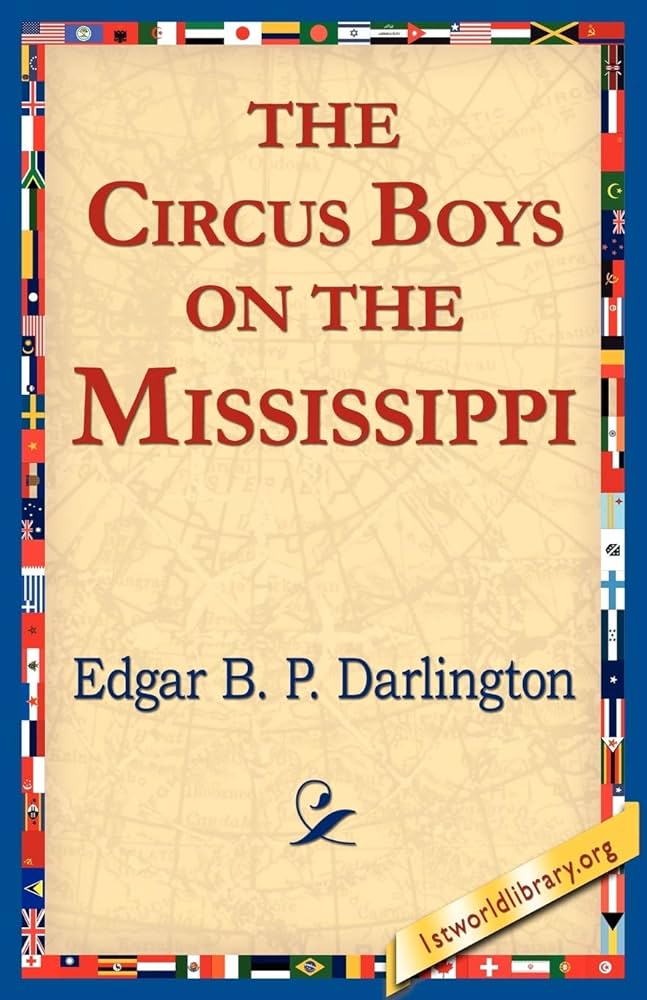Chapter XIX — The Circus Boys on the Mississippi
byChapter XIX opens with an idea that energizes the entire circus steamboat: Phil Forrest’s suggestion to split the band into two and have them perform on deck as the boat approaches Des Moines. Mr. Sparling readily embraces the plan, seeing it as both an impressive entrance and good publicity for the show. To ensure cooperation, he agrees to pay the band members a little extra for their effort, which boosts morale and creates excitement throughout the crew. As dawn breaks, the musical surprise is set in motion, waking passengers with the crashing of cymbals and the booming rhythm of horns and drums. The performance spills joyful noise across the river, drawing attention to the approaching vessel. It’s a show of spectacle before the main attraction even begins—a mobile overture for the grand event waiting onshore.
Inside the sleeping quarters, the circus boys stir, initially confused by the ruckus. Phil, recognizing the sound as the band in action, calls out to Teddy, prompting their usual banter to spark. What starts as teasing quickly turns into a playful scuffle, a reminder of their brotherly bond. Their lively energy spills over from the cabin to the deck as Teddy attempts to flee Phil’s jabs. In an impulsive move, Teddy dives through the nearest open window—unfortunately, it leads directly into a waiting bass drum. The result is both hilarious and disastrous, with the massive drum bursting under his weight, silencing the beat and leaving the band stunned. This moment, though chaotic, is also distinctly circus-like, where unpredictability is part of daily life.
The band members react with a mix of outrage and laughter, unsure whether to scold or applaud the boy’s accidental acrobatics. The drummer, whose beloved instrument has just been destroyed, glares at Teddy, while the rest of the musicians lose track of their parts in the confusion. Phil rushes to mediate, trying to explain while also keeping the mood light. The scene devolves into controlled mayhem until Mr. Sparling steps in. Rather than punishment, his response is rooted in experience—he has seen plenty of circus mishaps, and this one is no worse than the rest. Still, the boys are told they’ll need to repay the cost of the broken drum. Teddy groans, Phil nods. It’s fair, after all.
Later, Phil insists they make good on the debt, even when Sparling offers to cover it himself. This gesture impresses the showman, revealing a layer of maturity in the boys who often act with unchecked enthusiasm. Responsibility, even in the face of silliness, matters in the circus world, where everyone relies on one another to keep the show running. Through this, readers get a deeper sense of the ethical culture woven into circus life—mischief may be tolerated, but accountability is expected. Sparling’s decision not to scold but to trust shows his faith in the boys’ character. That trust is what keeps this unusual family bonded more than rules ever could.
As the band regroups and prepares for a second try, the atmosphere shifts from disorder to anticipation. The crew understands the incident for what it was: a moment of slapstick rooted in youthful zest. The parade into Des Moines resumes with renewed enthusiasm, their story adding another layer to the legend of the Great Sparling Shows. Laughter, after all, is one of the circus’s greatest currencies. As the steamboat approaches the docks, crowds can already be seen gathering, drawn by the distant sound of music—and perhaps, unknowingly, by the spirit of fun that drives it. What began with a prank becomes a memory none of them will forget.
This chapter adds more than just comic relief; it illustrates how shared experiences—both triumphant and ridiculous—forge unbreakable bonds. Even mistakes can be building blocks for respect, especially in a world where everyone must wear many hats, from performer to problem-solver. Through it all, Phil and Teddy continue to grow, not only in skill but in character, ready for whatever adventure the next city brings.

